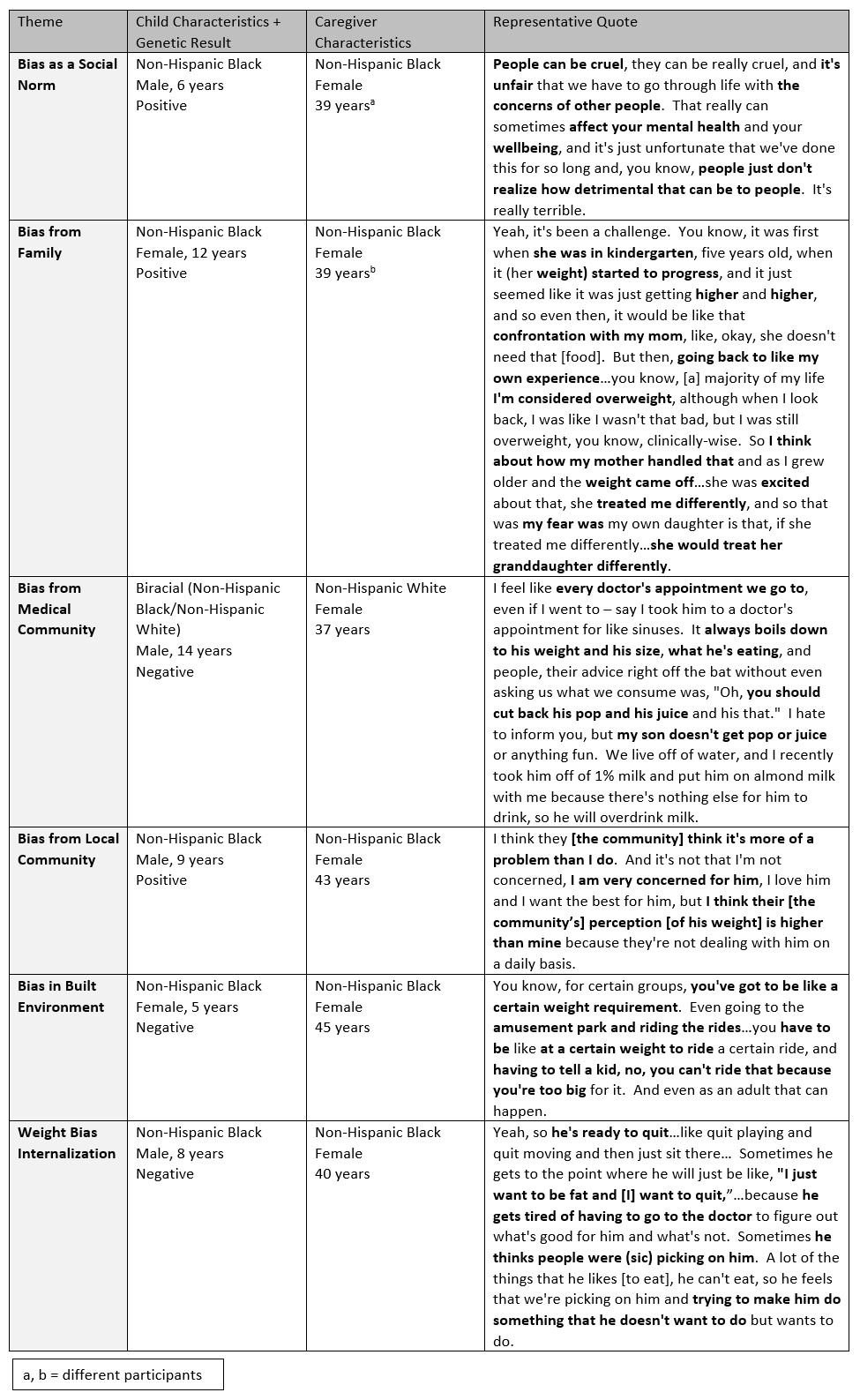Obesity
Obesity 2
403 - Parental experience of weight bias as a motivator for pediatric genetic testing for obesity in diverse children and adolescents: A qualitative analysis
Friday, April 28, 2023
5:15 PM - 7:15 PM ET
Poster Number: 403
Publication Number: 403.146
Publication Number: 403.146
Eileen A. Chaves, Nationwide Children's Hospital, Worthington, OH, United States; Dennis T. Jeffrey, Nationwide Children's Hospital, Columbus, OH, United States; Emily C. Kunkler, The Ohio State University, Columbus, OH, United States; Amy R. Sharn, Nationwide Children's Hospital, Columbus, OH, United States
.jpg)
Eileen A. Chaves, PhD (she/her/hers)
Pediatric Psychologist/Assistant Clinical Professor of Pediatrics
Nationwide Children's Hospital
Worthington, Ohio, United States
Presenting Author(s)
Background: Obesity rates continue to rise in children and adolescents. The heritability of obesity has been estimated to be 40-80%. Genetic testing for monogenic causes of obesity in the clinical setting is increasing; however, it is unclear why caregivers choose to have their child tested for a genetic cause of obesity.
Objective: The objective of this study was to understand motivators for caregivers of diverse children to receive genetic testing for obesity to better inform clinical care.
Design/Methods: The sample from this qualitative analysis was derived from a larger study identifying mutations on the MC4R pathway. Inclusion criteria included participation in the main study, aged 2-17 years, and a history of severe obesity and hyperphagia. Caregiver-child dyads were recruited to ensure equal representation of genetic results across racial/ethnic subgroups (Non-Hispanic White, Non-Hispanic Black, Hispanic). A third of participants in the main study enrolled in the sub-study. Structured caregiver interviews were analyzed using grounded theory.
Results: Twenty caregivers were female, 50% Non-Hispanic White, 45% Non-Hispanic Black, 5% Hispanic, and 5% Biracial/Multiracial. Mean caregiver age was 42.3±6.5 years and BMI 40.5±7.9 kg/m2. Majority of children were male (55%), mean age was 10.0±4.7 years and BMI 40.8±9.9 kg/m2. Caregivers reported that their own experience with weight bias was one of the main motivators for having their child tested for a genetic cause of obesity. Caregivers identified multiple areas where they experienced weight bias, including: 1) as a social norm; 2) from family members; 3) from the medical community; 4) in their local community; 5) in their built environment; and 6) internally.
Conclusion(s): Caregivers identified their own experience of weight bias as a significant motivator to have their child with obesity tested for a genetic case of obesity. These findings suggest that caregivers' experience with weight bias prompts knowledge seeking to affect their child's own experience with weight bias. This work can help to better inform empathic care of families with children with obesity as they experience weight bias in multiple areas.

